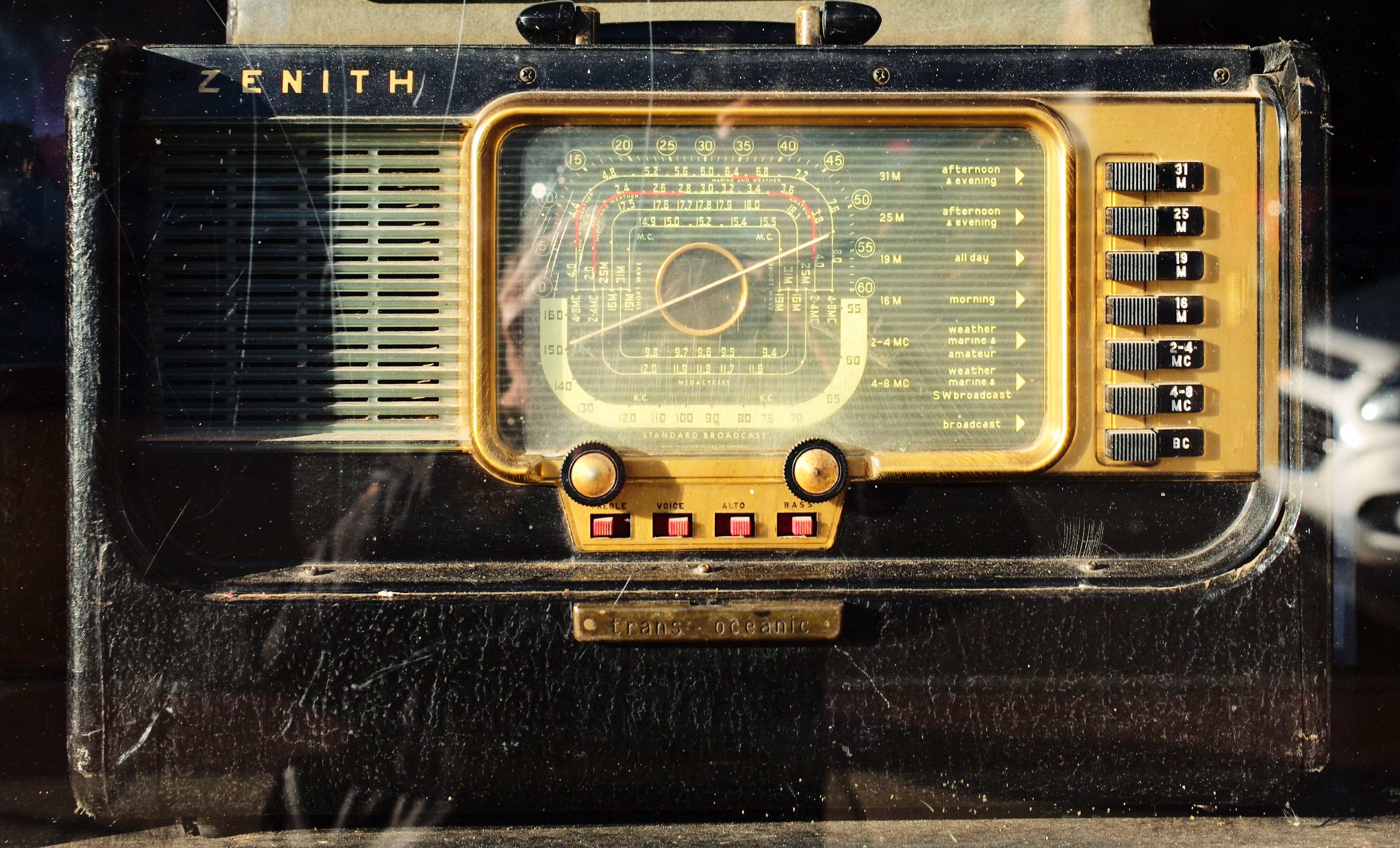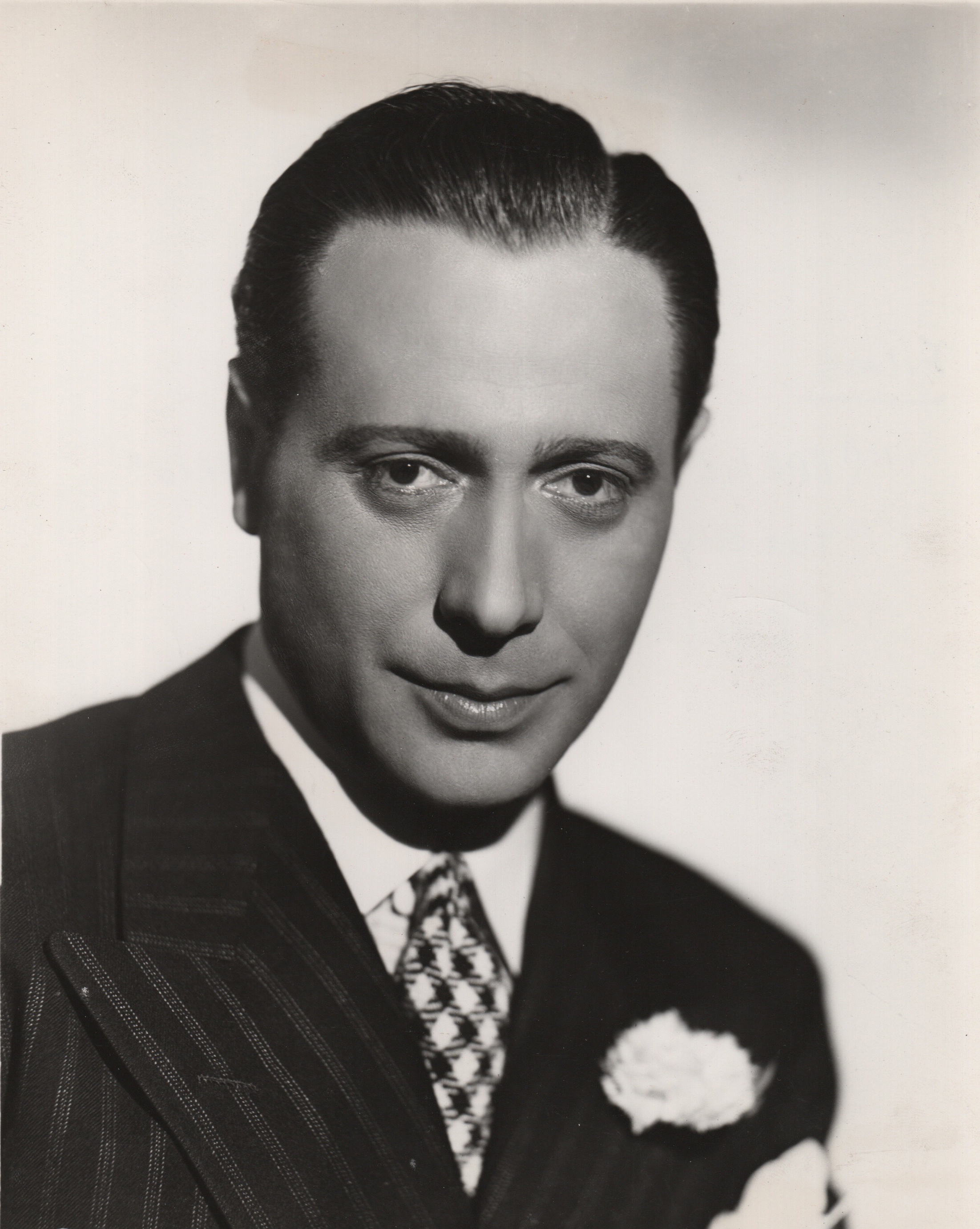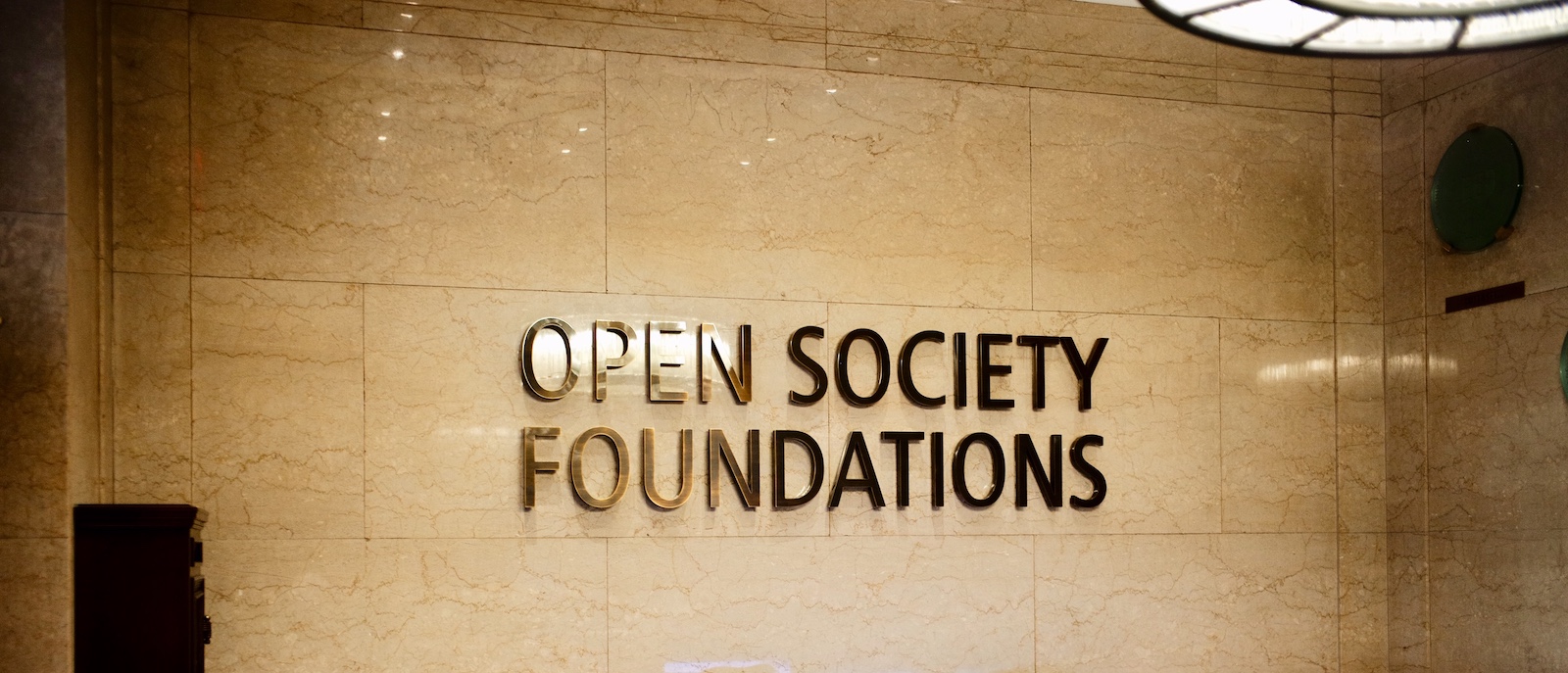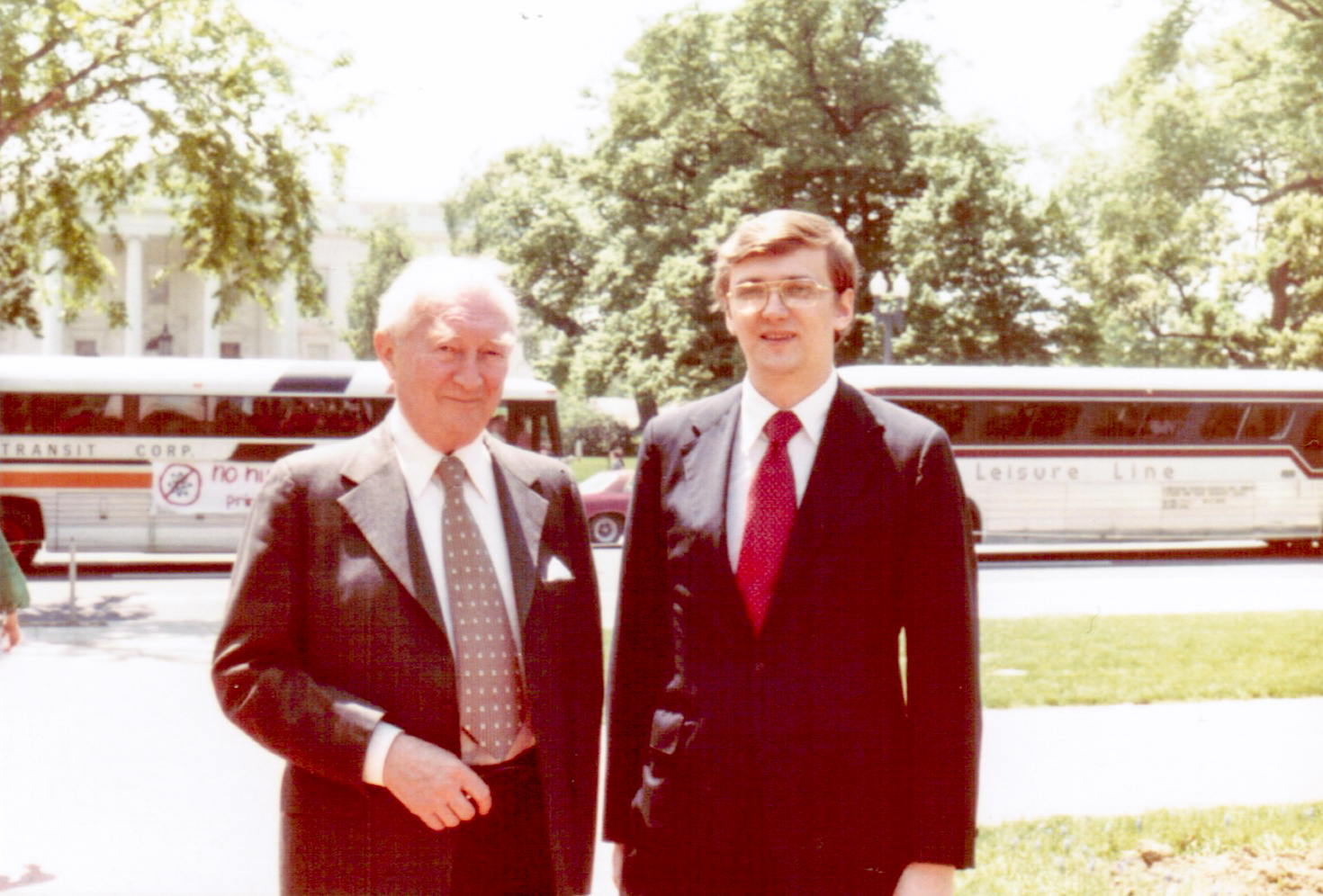By TED LIPIEN
The name of the handsome man with a tanned Latin complexion in the 1942 publicity photo was Edward Raquello. He was a Hollywood actor, but he soon became known as a “very talented terror” at the Voice of America (VOA), the U.S. government radio station broadcasting abroad, where he was hired that year as a producer and put in charge of training radio announcers during World War II and later in the early years of the Cold War. Before his Voice of America career, he played Latin lovers in a number of Hollywood films. Radio Daily, the national newspaper of commercial radio and television, referred to him in a report on July 7, 1943 as being “once known as the ‘Polish Valentino’ at the time the late Carl Laemmle brought that European film star to to Hollywood.” The paper praised his role as the “Polish immigrant” in a radio play titled America the Beautiful. Had we known earlier that Edward Raquello was the voice of the Polish immigrant, the paper wrote “the thrill to our ears wouldn’t have been so unexpected” “[His]splendid performance” Radio Daily added, “will be remembered (at least by this reporter) for many years,”
His American friends called him Eddie. Raquello was his American name. His name in Poland, where he was born on May 14, 1900 to a middle class Jewish-Polish family in Warsaw, then still within the Russian Empire, was Edward Zylberberg (Silberberg). His father died when he was a child. He was raised by his uncle, Beniamin Rykwert, the head of the Nożyk Synagogue who supervised his religious education. His mother, who died in 1932, ran a successful bakery and patisserie shop in Warsaw.
While still in Poland, Wowek, as he was affectionately called by his family, changed his last name to a more Polish-sounding name, Kucharski. In 1917, he began studies at the technical university in Warsaw, but his higher education was interrupted by the 1919-1920 war with the Soviet Union. Edward must have been a highly capable young man because he was chosen as a personal driver for Polish general Józef Haller despite the fact that some of Haller’s volunteers were strongly anti-Semitic, falsely accusing Polish Jews of siding with the Bolsheviks. With the exception of a few Polish and Polish-Jewish communists who took orders from Moscow, Edward and many other Jewish students saw themselves as Polish patriots and fought alongside ethnic Poles in the 1920 Battle of Warsaw which stopped and reversed the advance of the Soviet Red Army.
After the Polish-Soviet war, Edward started his acting career in Polish films. He also performed in theaters in Warsaw, Gdańsk, Kraków, Berlin, London, and Paris. An excellent, comprehensive and well-sourced article in Polish by young journalist Marek Teler, titled “Edward Raquello – zawrotna kariera polsko-żydowskiego Latynosa” (“Edward Raquello — A Meteoric Career of A Polish-Jewish Latino”), describes how Edward found his way to Hollywood. Rosabelle Laemmle, the daughter of the Universal Studios founder Carl Laemmle reportedly hired Edward as her dancing partner in Paris when he fell on hard times. She immediately noticed his resemblance to Rudolf Valentino. The party-loving young woman was believed to have persuaded her father to offer Edward a contract with Universal Pictures. He arrived in New York on March 26, 1926.
A Latin Lover and Broadway Actor
Edward’s first Hollywood name was Edward Regino before he changed it to Raquello, possibly to honor his beloved sister Rachel who remained in Poland. Rachel survived the Holocaust, but his other sister, Jentel, was murdered in a German concentration camp together with her husband and their two children.
Edward Raquello’s first notable American role was that of a dancer Raoul in the silent movie The Girl from Rio. Afterwards, his movie career had stalled for a few years, during which he appeared in several Broadway plays, often playing handsome and aristocratic foreigners, mostly of Latin origins. In 1937 he signed a contract with 20th Century Fox and resumed his movie career, appearing in several films, including Charlie Chen at Monte Carlo and Idiot’s Delight with Clark Gable and Norma Shearer in the main roles. In 1938 he became an American citizen. Some of his other film roles were in Missing Daughters (1939), The Girl from Mexico (1939), and Calling Philo Vance (1940). He never became a major Hollywood movie star but had a reasonably successful American career as a film and theatre actor. Marek Teler reported that Raquello promoted Polish culture in the United States and assisted visiting Polish journalists in arranging interviews with film celebrities in Hollywood. In 1940 he played the role of a Polish officer Major Rutkowski in a Broadway production of Robert E. Sherwood‘s play There Shall Be No Night about the 1939-1940 Soviet attack on Finland. The play was directed by Alfred Lunt who admired Raquello’s acting talent and once fired another actor who publicly insulted Edward on stage during a rehearsal. Edward Goldberger, a veteran VOA broadcaster who had worked with Raquello said later in an interview that Raquello had to have provoked the actor to such an unprofessional outburst as he was later known to provoke many VOA broadcasters with his own erratic behavior. One explanation for it might have been that he suffered from an undiagnosed Addison’s disease, but according to Goldberger, Raquello was a unique, talented but difficult person.
But the thing that came into my mind was, he must have been like that then, too. What provoked this guy to do something so unprofessional? It must have been that Raquello was Raquello.






